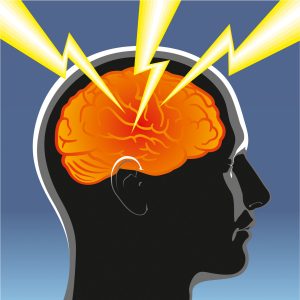 If you want to know the truth about what is going on in your world, you need to get interested in ideas. If you care about what is going to happen in the future, if you care about freedom, peace and prosperity; you must enter the realm of, and deal with, ideas. Ideas are powerful, big or small, they motivate people, and therefore they steer civilisations. You are living through an era in which there is a battle going on for the minds of people. This battle, is one of ideas.
If you want to know the truth about what is going on in your world, you need to get interested in ideas. If you care about what is going to happen in the future, if you care about freedom, peace and prosperity; you must enter the realm of, and deal with, ideas. Ideas are powerful, big or small, they motivate people, and therefore they steer civilisations. You are living through an era in which there is a battle going on for the minds of people. This battle, is one of ideas.
So, what are ideas? Where do they come from? And why are they so important? Let’s address these questions, and more.
What exactly is an idea?
Firstly, an idea is a phenomena of the human form of consciousness. Every word we use represents an idea: every concept, name, principle, or generalisation, stands for an idea. No matter how complex or how simple, every thought is an idea. Ideas are conceptual snapshots and/or integrations that only a mind can grasp. Animals and insects — all non-conceptual forms of consciousness — cannot deal with ideas. The ability to do so rests on our faculty of reason, our uniquely human characteristic.
Secondly, because consciousness is primarily aimed outwards, every idea is some kind of identification of some aspect, or aspects, of reality. Even when we introspect: examining thoughts, feelings, aspirations, or memories, these are all ultimately the results of looking outwards; the subject matter originates from what we experience in the world. Even when we use our imagination, seemingly inventing ideas, these are all just rearrangements or re-combinations of various things we have seen, heard of, or experienced in some form. The human creative ability is not that of creating new ideas, as such. It is the ability to conceptually identify aspects of reality and then invent new permutations, combinations and integrations of this multitude of identified ideas. Reality is the source of all ideas.
In essence, an idea is a thought identifying some aspect(s) of reality, no matter how scrambled, distorted or rearranged. Ideas are the individual units of thought.
The most basic ideas are those of individual things (concretes) represented by words or names. Remember every word in language represents a concept — an idea. And these ideas are the building blocks of thought.
Reality (thing, person, place, event, etc) – thought (idea) – word (or name)
Conclusions and fundamentals
Single concretes and concepts are the most basic ideas. However, most of the ideas we deal with are quite complex, and are made up of multiple smaller ideas. For example: where to go for lunch, wanting to be a fireman, or solving a problem a particular way. All of these contain dozens of other ideas packed within them.
The truth seeker is usually interested in very complex ideas, involving multiple layers, both logically stacked on top of each other, in accordance with the hierarchy of knowledge and the principle of cause and effect, and also inter-relating with other ideas across different subjects. The resulting complex ideas can be huge, involving a great many conceptual components, principles and observations. For example: a climate emergency, a pandemic, various political ideologies, vegetarianism, company management strategies, etc, etc.
But as well as really big and complex ideas built on so many others, there are also fundamental ideas that have enormous implications, and that effect numerous downstream ideas that logically proceed from them. It is these fundamental ideas that are the most important.
The astute thinker must learn to be aware of both of these kinds of implicit ideas, both causal and consequential. These implicit ideas are not obvious, they lurk beneath the surface and go un-noticed unless specifically identified..
Why ideas matter
Ideas matter because they connect us to reality and thus enable human life and flourishment – if they are true! It is the proper role of the intellectuals in a culture to evaluate ideas, and to disseminate and promote the ideas that are true.
In our present western culture, the intellectual class has long been co-opted, corrupted and bought. In precisely the same way, and for the same reasons, as the mainstream media is no longer a credible source of truth, mainstream intellectuals cannot be trusted. They are a lost cause; they are the gatekeepers for the parasite class. Mainstream philosophy is hopelessly lost; it has reached the dead-end at the end of its course. The predominant ideas espoused would have you believe that reality is an illusion, that knowledge is impossible, and that the mind is impotent. Well intentioned young thinkers who are unaware of this context, are simply led up towards the cultural cul-de-sac towards a dead end of pointless inefficacy.
The role of the intellectuals now falls to the individual, the truth seeker, the citizen scientist. This is why you need to get interested in ideas — fundamental ideas. Because only the individual truth seeker can perform this vital cultural role. Truth has become a small niche, the preserve of the individual who is prepared to put in the effort, and has the resources to be able to do so.
True or false
 In a nutshell, ideas that correlate with the facts of reality are true, those that don’t are false. When people come up with new ideas they must be tested against reality to find out if they are commensurate with it. Thomas Edison allegedly tested his idea for a light bulb thousands of times before he got his idea ‘formula’ exactly correct. Every component of the complex idea that was his goal had to be precisely in accordance with the facts of reality for it to work!
In a nutshell, ideas that correlate with the facts of reality are true, those that don’t are false. When people come up with new ideas they must be tested against reality to find out if they are commensurate with it. Thomas Edison allegedly tested his idea for a light bulb thousands of times before he got his idea ‘formula’ exactly correct. Every component of the complex idea that was his goal had to be precisely in accordance with the facts of reality for it to work!
The idea of which berries, or mushrooms, to eat is a matter of life or death. The idea of how to build a skyscraper or suspension bridge must clearly be precisely in accordance with the facts of reality. In spite of the enormous number of component ideas, there must be not one that causes the overall idea to depart from the facts of reality. Otherwise, failure and possible fatalities are the inevitable result.
If we are to act on them, and succeed, ideas must be true!
The power of ideas
Ideas motivate people. Ask yourself how someone might act if they believed the idea that personal achievement is possible, versus the idea that it is not? How would someone act if they thought knowledge was achievable versus the idea that nobody can ever know anything? How would someone live a life if they considered reality to be set against them, rather than thinking their success is entirely dependent on the effort they put in? Ideas inform action.
But if we dig a little deeper we can see that ideas inform the way we think, and therefore the way we behave. Ideas such as, what is acceptable and what is not, what is possible and what is not, what is good and what is evil, all influence people’s choices of what values to pursue and how to pursue them. Therefore, ideas not only inform action, but more significantly they inform our all of our basic premises, our understanding of the nature of reality — whether its real, or all simply an illusion. They inform our deepest motivations, our understanding of morality, i.e. the right way to live, even if we don’t think these things through consciously.
Ideas are powerful, and the most fundamental ideas are the most powerful. The most fundamental ideas are philosophical ideas — ideas about the nature of reality (metaphysics), theory of knowledge (epistemology), and how men should live (ethics). This is why it is essential for the thinker/truth seeker to become conversant with the basics of philosophy.
And just as you can influence they way one man thinks and behaves — what he values and what he doesn’t, what he believes in and what he doesn’t — so you can influence nations, or a whole culture, or an entire civilisation! This is how powerful ideas are.
 Altruism is an ethical religious ideas that has been around for millennia. Consider that this idea tells the believer to sacrifice their values for the sake of others, and that they have no right to live for their own sake. This idea perfectly predisposes people to accept collectivism (a society in which you have no right to live for your own sake) and slavery (you give up your values for the benefit of others). So does the idea that the standard of good is any action performed for the benefit of others, and conversely, that evil is any action performed for the benefit of self. These ideas powerfully predispose western culture towards the collectivist tyranny that it is fast moving towards. These ideas about morality are very powerful, and if freedom is the goal, they must be questioned, and rejected!
Altruism is an ethical religious ideas that has been around for millennia. Consider that this idea tells the believer to sacrifice their values for the sake of others, and that they have no right to live for their own sake. This idea perfectly predisposes people to accept collectivism (a society in which you have no right to live for your own sake) and slavery (you give up your values for the benefit of others). So does the idea that the standard of good is any action performed for the benefit of others, and conversely, that evil is any action performed for the benefit of self. These ideas powerfully predispose western culture towards the collectivist tyranny that it is fast moving towards. These ideas about morality are very powerful, and if freedom is the goal, they must be questioned, and rejected!
Religions all rest on the idea of a supernatural deity, or god. All such ideas necessarily rest on the epistemological concept of faith, since there is no proof or evidence of such a deity. Faith is believing ideas without reasons. Faith, supernatural deities, and miracles, all rest implicitly on the idea of the primacy of consciousness — more on this in a moment. To help grasp how ideas can steer civilisations, just consider the idea of religious doctrine as being the word of god, the divine supreme being! How much influence has this idea had? And, for how long?
Unpacking ideas
 A key part of the solution is to learn to spot the ideas within ideas. This means developing awareness of the implicit, both causal and consequential. It means thinking about what other ideas must logically precede, or follow on from, any given idea (proposal, claim, assertion, policy). Implicit ideas are those that are not specified or mentioned, yet remain logically necessitated by the main idea being considered.
A key part of the solution is to learn to spot the ideas within ideas. This means developing awareness of the implicit, both causal and consequential. It means thinking about what other ideas must logically precede, or follow on from, any given idea (proposal, claim, assertion, policy). Implicit ideas are those that are not specified or mentioned, yet remain logically necessitated by the main idea being considered.
Asking questions is the main drilling tool for digging deeper into any idea. For example asking questions such as: “What other ideas must be true, for this to be true?”, or “What is the knock-on effect if this is true?”. Sometime simply asking “why?” will suffice.
In the mainstream narrative and commercial marketing campaigns alike, ideas are sold as conclusions — as facts that are true. There is seldom any doubt about an idea if it has been presented (marketed) well. The consumer of the idea will feel confident that they are dealing with truth, they now know something. There is little room in the sound bite culture for explanations and lengthy reasoning, we just get a barrage of conclusions. So it falls to the individual to unpack each claim and every story to determine what other ideas are hidden and not immediately obvious.
We all get used to just listening to an endless stream of ideas without unpacking them. Most people haven’t got the time or inclination. We are used to accepting or rejecting conclusions without checking the reasoning behind them or the premises on which they rest. This perfectly suits any would-be tyrants or malevolent interests, and predisposes a culture to manipulation. The truth seeker rejects this habit.
The historical battle of fundamental ideas
 The history of mankind is the history of ideas, moved forward only by those who choose to think. Philosophy is the study of fundamental ideas that effect man’s life, but note that only the enjoyment of a certain level of wealth and security affords men the ability to spend time grappling with ideas.
The history of mankind is the history of ideas, moved forward only by those who choose to think. Philosophy is the study of fundamental ideas that effect man’s life, but note that only the enjoyment of a certain level of wealth and security affords men the ability to spend time grappling with ideas.
Plato, the philosopher who lived from 428 BC to 348 BC in ancient Greece, was the most significant advocate of the primacy of consciousness idea. This holds that reality is in some way created by consciousness. He spoke of another realm or reality, that of ideas, or forms, as he called them. All things that manifest in this world, according to his idea, originate in the reality of forms (ideas).
Plato’s contemporary, Aristotle (384 BC to 322 BC) held the opposite view, that reality is the metaphysical primary, that reality is real, and exists objectively independent of any consciousness. Aristotle is the father of logic, and originator of the law of identity.
These two men espoused diametrically opposing views of the nature of reality. Plato’s ideas are the basis of all mysticism, whereas Aristotle is the father of reasoned thinking. It was Aristotle’s ideas, resurrected by Thomas Aquinas (1225 AD to 1274 AD) in his attempt to reconcile them with Christianity, that ultimately brought an end to the dark ages and paved the way for the Renaissance (the rebirth — of reason), the enlightenment, and the scientific and industrial revolutions.
The modern version of Platonism is called idealism. This is not, I hasten to add, because it is ‘ideal’, but because it advocates the primacy of ideas. There is no mainstream opposition to this modern reversion to mysticism and the primacy of consciousness. However, Ayn Rand’s philosophy of Objectivism is the resurrection and development of Aristotle’s philosophy, into a comprehensive and consistent set of principles to rationally guide human life. Unsurprisingly Rand’s excellent thinking has been relentlessly rubbished and sidelined by the mainstream, yet it remains the only philosophy to logically underpin the discernment of truth and the acquisition of what can genuinely be called knowledge.
The Development of ideas
Ideas are always in competition with each other. And when the playing field is level, the ideas that work, win, over the ones that don’t. Ideas that correlate with reality succeed, ones that don’t, fail. It is only when force is brought to bear to silence some ideas, when certain ideas are forbidden (the dark ages), or censored (today), that stagnation sets in, and the natural development of the sum of human knowledge is thwarted and derailed.
Preferred ideas are the ones generally considered good, and that correlate with our cultural values. These are passed on from parents and surrounding culture to the next generation, irrespective of their truth. They are spread in classrooms and in all forms of training. But they are also be spread by being sown into the minds of people through many other means: such as stories, plays, sayings, catch phrases, songs, popular culture, news stories, political speeches, policies, think tanks, and Non Governmental Organisations. For the naively trusting public, there is always a risk that these promoted ideas may be false. When agendas are being pursued behind the scenes, and ideas are disseminated in propaganda, spin and fake news, or from the mouths of puppet ‘authority’ figures, the risk becomes a certainty.
The point to note here is this: for the preservation and advancement of human knowledge, for the preservation of peace, for the achievement of freedom, and the proper development of society, an absence of censorship and propaganda is essential. The free market of ideas should operate unhindered by hidden vested interests conducting secret campaigns of deception — as we see today. This could not become a serious problem if there were a credible intellectual class of thinkers. There is no longer such a thing. So this task now falls to the individual. Truth seekers such as you and I must maintain astute intellectual vigilance, and take the time and effort to think for ourselves, scrutinising all the ideas we hear from the multiple of sources just mentioned.
Mind control
 Some blame the current political slide towards collectivism on mind control, or brainwashing. The implication here — the hidden idea beneath the surface — is that it cannot be helped; we are exposed to mind control, and it effects us irrespective of our actions. This is not true. Ideas are being planted into the minds of people —as they always are — but these days the vast majority decline to exert the effort of scrutinising them, and rejecting or accepting the implicit ideas as appropriate. Mind control is simply feeding ideas to unthinking, or intellectually lazy, minds.
Some blame the current political slide towards collectivism on mind control, or brainwashing. The implication here — the hidden idea beneath the surface — is that it cannot be helped; we are exposed to mind control, and it effects us irrespective of our actions. This is not true. Ideas are being planted into the minds of people —as they always are — but these days the vast majority decline to exert the effort of scrutinising them, and rejecting or accepting the implicit ideas as appropriate. Mind control is simply feeding ideas to unthinking, or intellectually lazy, minds.
If you know an audience chooses to be exposed to ideas, and is receptive and willing, it’s called education. But when people have not made such a choice, they are not conscious of any exposure. However, we are all exposed to ideas, all the time, in the normal course of daily life. So when ideas are specifically sown into a culture, in the form of propaganda, and people are not wary, the ideas get absorbed — unconsciously. If we drop our intellectual guard (or have none), we can unwittingly absorb all sorts of false ideas, false fundamentals and false conclusions.
The truth seeker must become more conscious of ideas in general — especially fundamental philosophical ones — to examine them and to question them, and then to reject or accept them as appropriate. The only way to do this is through the practice of thinking, engaging, taking an interest, developing one’s intellect. This is what is meant by the phrase, ‘vigilance is the price of freedom’.
Testing and checking our ideas
We all need a means to test and validate the ideas we deal with, the ones we are told and the ones we generate ourselves. This is the need for an epistemology, a set of guiding principles and a method to discern truth.
The proper process of growing up into functional adulthood should involve a process of questing all the ideas (even sub-verbal ideas) we have collected over the years, and during our childhood, and testing them against reality using our faculty of reason and in the light of our up-to-date adult knowledge. In the absence of this process ideas remain buried in the subconscious affecting the way we live in a negative way if they are false, and in a positive way if they are true.
The truth seeker, and indeed every functional human being, requires an accurate mental map of reality. This means making sure that all the fundamental ideas in your head that you depend on, that determine your values, or that motivate your choices and actions, are questioned and evaluated, to determine if they correlate with reality. They must be true. They must accord with the facts of reality and contradict none of them. This should be done before (if not at the same time as) one begins delving into specific issues and ideas to determine their truth.
Get interested in ideas
 It is the dominant fundamental philosophical ideas that have brought us to where we are in the 2020s, and it is these that must be changed if we are to achieve human freedom – the precursor to human flourishment. The truth seeker must therefore begin by setting his own philosophical house in order. It cannot be overstated how important this is. If you avoid this process you will avail yourself to the logical fallacy of arguing against a basic premise that you are using in your argument (Rand’s fallacy of the stolen concept). If you consider yourself aware that we are being lied to, you should extend this presumption into the realm of philosophy, because this is where the roots of deception lie. And this is the realm of ideas that affect your thinking, and thus, your ability to correctly discern truth.
It is the dominant fundamental philosophical ideas that have brought us to where we are in the 2020s, and it is these that must be changed if we are to achieve human freedom – the precursor to human flourishment. The truth seeker must therefore begin by setting his own philosophical house in order. It cannot be overstated how important this is. If you avoid this process you will avail yourself to the logical fallacy of arguing against a basic premise that you are using in your argument (Rand’s fallacy of the stolen concept). If you consider yourself aware that we are being lied to, you should extend this presumption into the realm of philosophy, because this is where the roots of deception lie. And this is the realm of ideas that affect your thinking, and thus, your ability to correctly discern truth.
The battle of ideas
Today there’s a battle of ideas playing out in the world. It is a battle for the minds of the masses — for their allegiance to particular ideas. But this battle of ideas is not being fought in a context in which there is an open an honest debate; or in which all the ideas are freely on the table to observe and evaluate; or in which all people are aware of the ideas in question; or in the context of an educated populous engaged in the debate or even interested in the outcome.
The battle of ideas is being waged by crooks and deceivers. Some call them the ‘elite’, but they are a parasite class who wish to create a New World Order, a collectivist society that enslaves the masses and places them under tight political control. In this battle of ideas the playing field is not level and fair. Censorship, propaganda, and outright lies are used to ensure that you don’t hear the ideas that would result in you refusing to comply with policies and actions that promote their agenda, but that you hear from all quarters the ideas that support their agenda.
Men have been controlling other men, with varying degrees of success, ever since the first human interactions — and it continues today. An intellectual army of truth seekers is required. Thinking people who are prepared to question the ideas that have endured for millennia: altruism, self-sacrifice, that selfishness is evil, mysticism, supernatural deities, accepting things on faith, that man has no right to live for his own sake, that we are all one, unconditional love, etc, etc. All of these stand in the way of freedom and of human flourishment.
Harmful ideas
The concept of ideas being harmful is put about as a false justification for censorship under the disingenuous guise of protecting the public. It is nonsense, and must be seen for what it is.
Acting on ideas that are true leads to successful action, and that acting on ideas that are false leads to failure and suffering. In this respect it is true that some ideas are harmful. False ideas are harmful, if acted upon.
However, the idea that government, or some agency, can protect the public from ideas that are false is preposterous.. It is not possible to protect anyone from the myriad of potentially false ideas they can encounter, or dream up, and the subsequent harm they might do themselves acting upon them. Furthermore, it is undesirable to attempt to do so. Proper human functioning is a continuous process of discerning which ideas to act on, discerning truth from falsehood, and making decisions accordingly. Could the government assume the proper role of every single functional adult? Of course not! The logical extension of the aim, would entail 24/7 monitoring and care, like parenting every citizen! How could this be practiced in a democracy, where it is assumed that the electorate is functionally capable of weighing one political candidate against another, weighing the espoused ideas, and making a choice based on far more abstract and complex matters than simply avoiding harm in one’s daily life!
Conclusion:
Ideas are important for 2 main reasons. Firstly, they are very powerful — the fundamental ones (philosophical ones) being the most powerful. They motivate and control us by informing our deepest premises. This, in turn, informs whether or not we think, and how we think. Ideas inform our values, and how we live in the broadest sense. Ideas control people.
Secondly, ideas can be true or false. However simple or complex an idea, whatever integration, combination, or rearrangement of identifications of reality is being considered or proposed, the idea must be true for it to be safe to act on. Acting on false ideas leads to suffering. Acting on true ideas leads to freedom, success, abundance, and human flourishment.
Get interested in ideas! Be one of the new intellectuals. Join the army of truth seeking intellectuals so desperately needed to scrutinise and evaluate the ideas being proposed and discussed today. Our intellectual class has long betrayed us. They have been co-opted and bought by nefarious interests. Those who care about freedom and a future that avoids a collectivist tyranny must take a stand and join in the battle of ideas.
Resources
Check out these other posts and podcasts here at lawfulrebel.com
An introduction into how to think.
How mainstream morality opposes human flourishment.
Leave a Reply